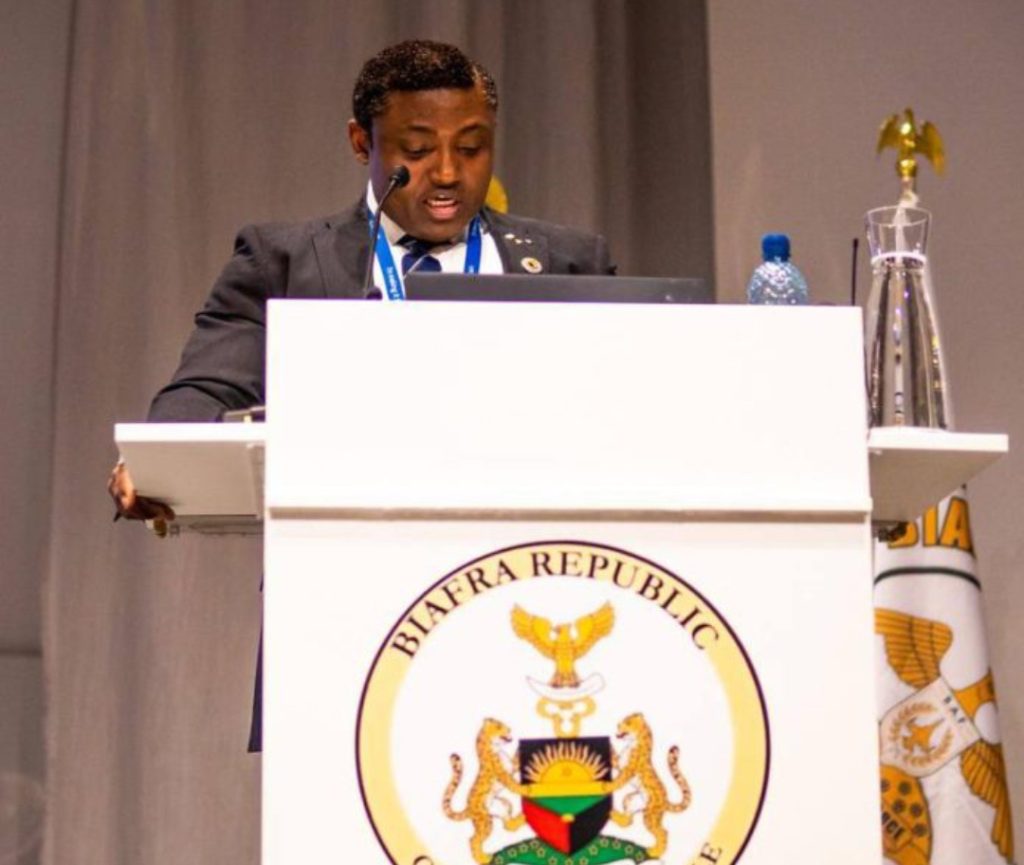On September 1, 2025, the Päijät-Häme District Court in Finland sentenced Simon Ekpa, leader of the Biafra Republic Government in Exile (BRGIE), to six years in prison for terrorism-related offences, aggravated tax fraud, and breaching Finland’s Lawyers Act.
The Finnish court ruled that Ekpa used his large social media presence between 2021 and 2024 to incite violence and promote separatist activities in Nigeria’s South-East, an area dominated by Biafra supporters. Judges also accused him of equipping groups with weapons and explosives — an allegation Ekpa’s camp firmly denies.
BRGIE’s Reaction to the Verdict
In an official statement issued by Hon. Ogechukwu Nkere, the Acting Prime Minister of BRGIE, the group rejected the ruling, describing it as a “biased conclusion influenced by external political pressure.”
According to BRGIE:
-
The court ruling fails to differentiate between political activism, free speech, and terrorism.
-
Ekpa’s conviction was allegedly based on his social media advocacy for Biafran independence rather than credible evidence.
-
The charges of terrorism, tax fraud, and legal violations were politically motivated to please Nigeria and protect Finland’s international relations.
Nkere emphasized that BRGIE will appeal the verdict and expressed confidence that Ekpa will eventually be freed.
A Symbol for Biafra’s Struggle
BRGIE described the sentencing as both a setback and a breakthrough. While condemning the judgment, the group claimed that the case has now placed the Biafra independence movement on the global stage, especially in Europe.
“If the country you are fighting against is not scared of your struggle, then you haven’t started yet,” BRGIE stated, while encouraging Biafrans worldwide to remain hopeful.
The group further highlighted past cases where Nigerian authorities allegedly targeted pro-Biafra activists, including the abduction of Nnamdi Kanu in Kenya and documented killings of IPOB members by Amnesty International.
What’s Next for Simon Ekpa and BRGIE?
Despite the six-year sentence, BRGIE insists that Ekpa remains the “voice and eye of Biafra to the world”, while the responsibility of actual independence lies with Biafrans at home.
The group also vowed to:
-
File an appeal against the Finnish court’s decision.
-
Intensify diplomatic pressure in Washington D.C. and Europe.
-
Continue advocating for Biafra’s self-determination at international forums.
The Bigger Question
The ruling raises a key debate:
Does aggressive advocacy for self-determination qualify as terrorism in the 21st century?For BRGIE and its supporters, the answer is no. They argue that Finland prioritized its diplomatic ties with Nigeria over democratic values and freedom of expression.
As the case moves to appeal, the outcome will determine not just Ekpa’s fate, but also the future of Biafra’s independence movement on the international stage.

